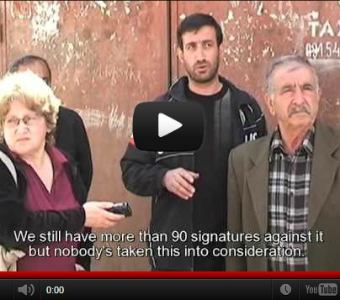A ban on all cyanide-based mining technologies on Hungarian territory that was passed by 356 votes in favour to one vote against in Hungary’s parliament earlier this month has strengthened hopes of other national bans – even a Europe-wide ban – ahead of the tenth anniversary of the Baia Mare disaster next month.
, | 22 December 2009

A ban on all cyanide-based mining technologies on Hungarian territory that was passed by 356 votes in favour to one vote against in Hungary’s parliament earlier this month has strengthened hopes of other national bans – even a Europe-wide ban – ahead of the tenth anniversary of the Baia Mare disaster next month.
The Baia Mare spill involved millions of gallons of polluted liquid and waste containing around 100 tonnes of cyanide and various heavy metals that travelled through the rivers of Romania, Hungary and Yugoslavia, wreaking major health and economic damage, eventually reaching the major waterway of the Danube.
A new Bankwatch report on the impacts of EBRD-financed gold mining projects recommends the bank not to finance cyanide projects in countries with ineffective regulation, including capacities for handling large scale accidents. When it comes to cyanide use, the question remains: is any country in central and eastern Europe equipped to deal with this poison?
The new Bankwatch video clip below presents the effects of mining in the Armenian village of Geganush and calls on the EBRD to do more to address pollution, resettlement and compensation issues for affected communities such as Geganush.
Never miss an update
We expose the risks of international public finance and bring critical updates from the ground – straight to your inbox.
